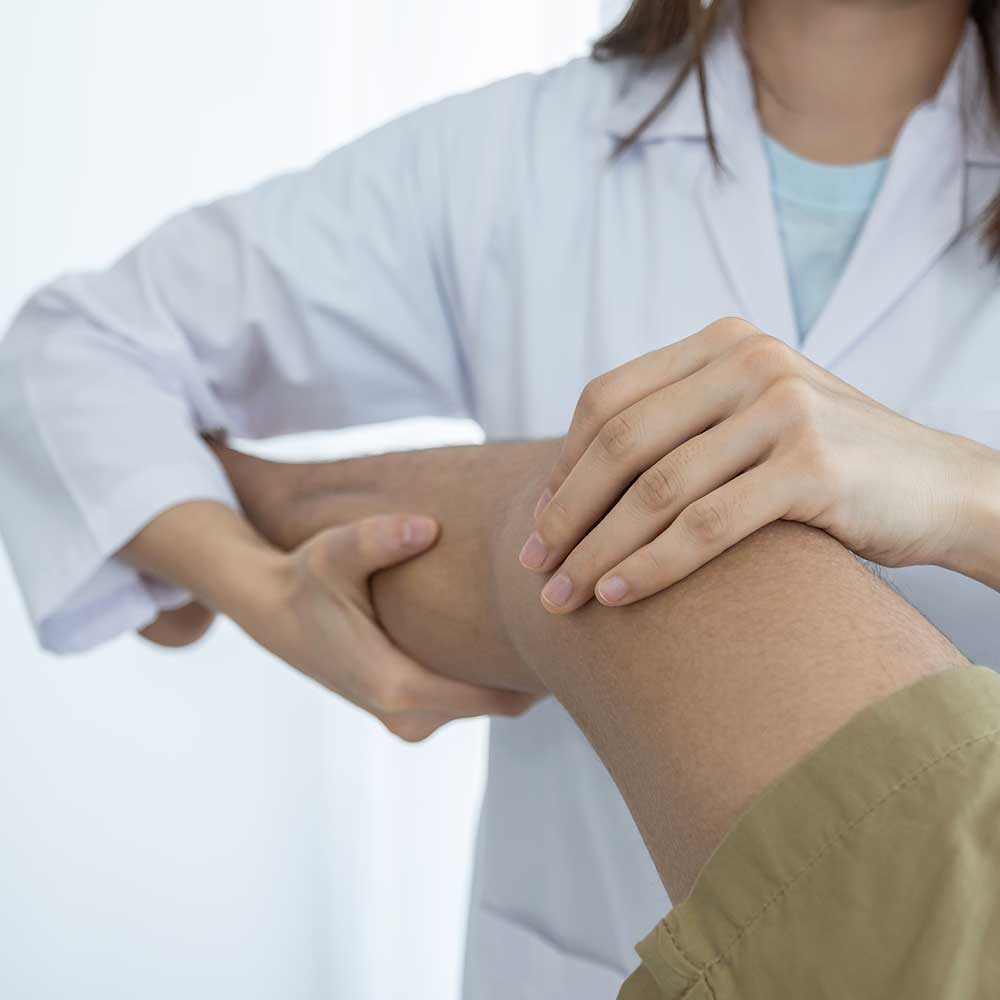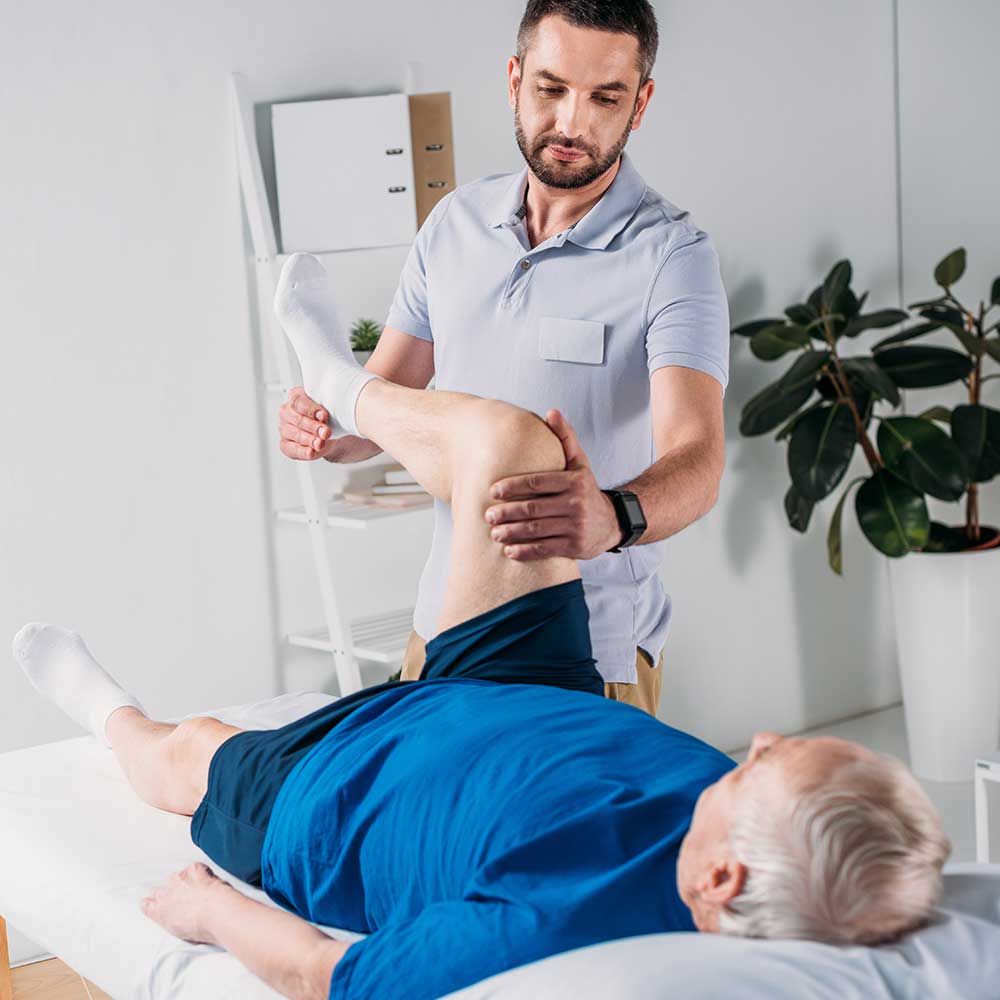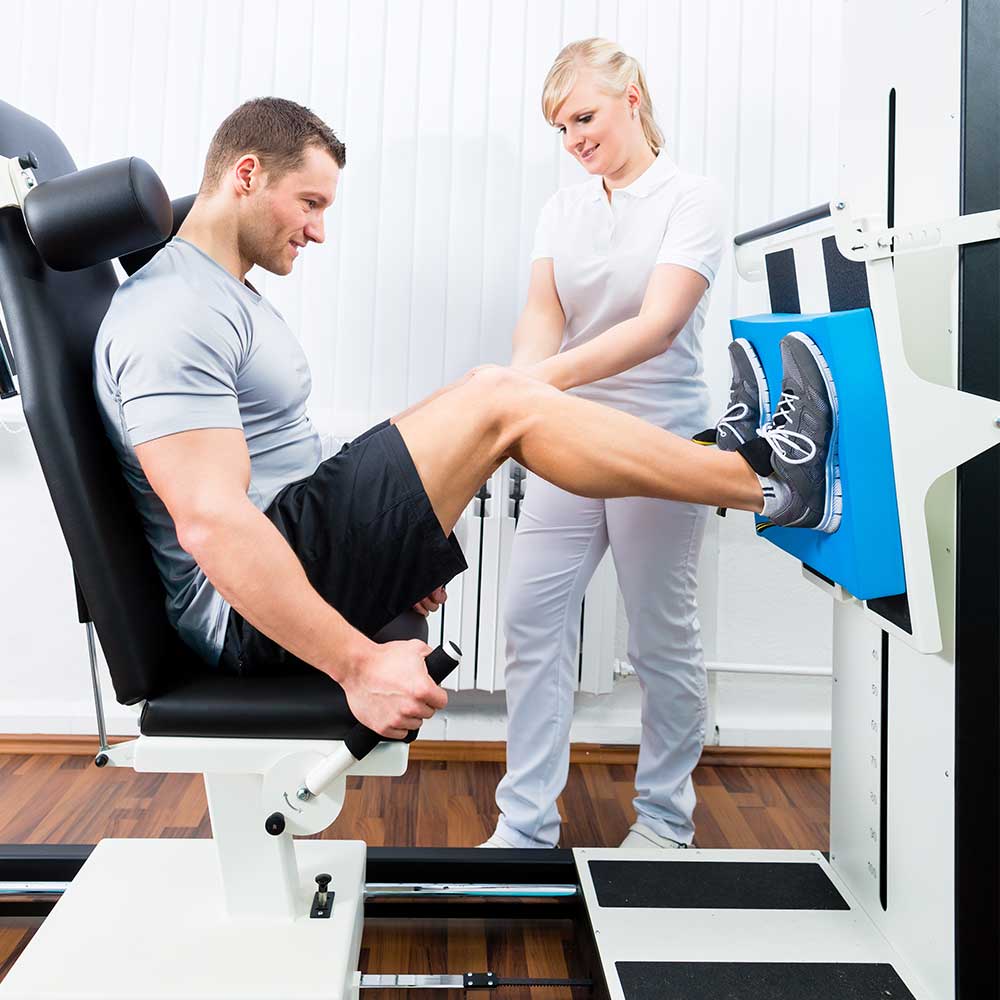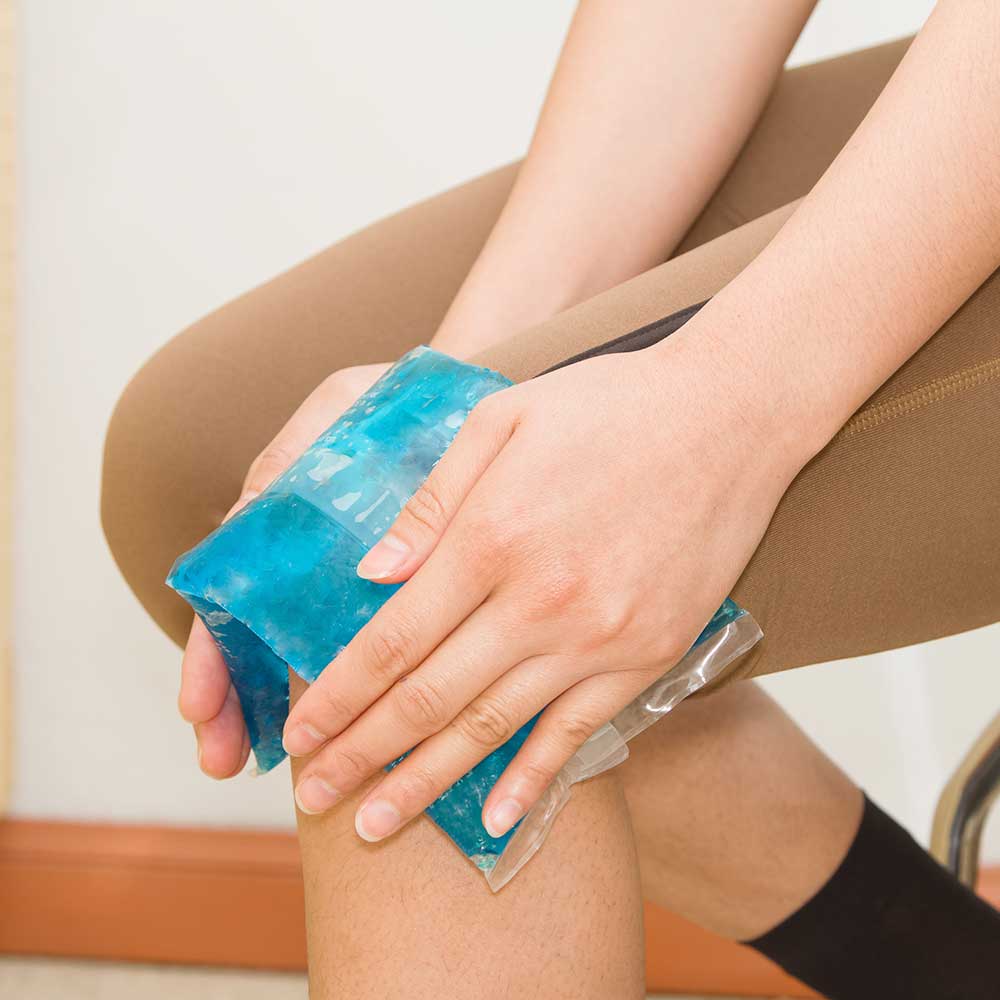With Your Knee Pain
At SEPT® Physical Therapy, our clinicians are experts in determining the cause of your knee pain and prescribing a course of treatment for knee pain relief and return of function.
Most Common Knee Complaints and Limitations:
- Limited range of motion in your knee.
- Pain in your knee with specific movements.
- Weakness in the muscles around your hip, knee, or ankle.
- Difficulty walking.
- Difficulty performing activities, such as rising from a chair or climbing stairs.
- Problems with your balance or coordination.
- Difficulty controlling your knee during certain activities.
- Difficulty performing specific sports activities (for athletes).

Our Specialty
Common Knee Pain Conditions That We Treat
- Anterior/Posterior Cruciate Ligament (ACL) tear
- Arthritis (General)
- Collateral ligament injury
- Medial (MCL) and Lateral (LCL)
- Hamstring injuries
- Tendinitis/tendinsosis
- Iliotibial Band Syndrome (ITBS)
- Knee bursitis
- Pes anserine Bursitis
- Lower extremity stress fractures
- Meniscal tear
- Discoid meniscus
- Osgood-Schlatter disease
- Patellofemoral (Kneecap) pain
- Plica syndrome
- Total knee replacement (Arthroplasty)
What Is the First Step?
Start By Scheduling an Evaluation Appointment.
Don't Wait - Get Started Right Now!
Clinical research shows that the sooner you get started with active rehabilitation, the less likely you will need unnecessary tests, medications, or surgery.
At your evaluation appointment, you will meet with a physical therapist who will perform a thorough evaluation that includes:
- A review of your health history and your specific symptoms.
- A thorough examination that includes assessing the quality and quantity of your movements, and any factors that might put you at risk for delayed recovery or might indicate a serious health problem.
- Assessment of how you use your body at work, at home, during sports, and at leisure.
- Determination of the diagnosis and impairments that are causing your pain and establishment of a treatment plan of care.
What to Expect
What Kind of Treatment Techniques Might I Receive?
Your physical therapist will develop a personalized rehabilitation program for your condition. This program can help you safely return to your desired activities. Some treatment techniques may include:

Manual Therapy
Hands-on treatments to mobilize your muscles and joints to restore and improve proper motion and strength.
Specialized manual therapy offerings at SEPT® Physical Therapy include:
- Traction
- Joint mobilization and manipulation
- Soft-tissue mobilization
- Myofascial Release
- Swelling/edema massage
- IASTM- Instrument assisted soft tissue massage
- Graston Therapy
Range-of-Motion Exercise
Activities aimed at improving movement of a specific joint including stretching techniques to decrease muscle tightness and help restore flexibility. There are 3 main types of range of motion (ROM) exercise: Active ROM requires very little assistance from the clinician and is done by the patient. Active-assisted ROM requires partial assistance from the clinician and is done with the patient. Passive ROM requires full assistance from the clinician and is done for the patient.


Muscle Strengthening
Exercises for muscle weakness or imbalance specific to your condition and capability. Sometimes referred to as strength/weight/resistance/endurance training, muscle strengthening exercises can include the use of weights, exercise bands, and body weight. The benefits of muscle strengthening include increased bone strength and muscular fitness.
Pain and Swelling Management
Treatments to reduce pain and inflammation and enhance recovery.
Specialized pain management offerings at SEPT® Physical Therapy include:
- Electrical stimulation
- Ultrasound
- Iontophoresis
- Vasopneumatic Compression
- McConnell taping
- Kinesiotaping
- Dry Needling


Patient Education
Includes providing information about your condition and treatment options and identifying and modifying any factors or activities causing your pain. Instructing you in home pain/swelling management and a home exercise program will help you maintain gains in motion and strength.
Functional Training
Therapeutic activities incorporate the use of multiple parameters such as balance, strength, coordination, and range of motion. Functional activities are designed to safely and gradually progress as you recover to allow for achievement of your functional and recreational goals.

Reviews
What Our Clients Say
Had rehab for two problems the last two summers – very bad pulled hamstring and sciatic nerve. In both cases the staff was up front and said it would be a process. Work with us and you can get thru it. The whole staff was professional and first class. I am back to 100 percent and can participate in multiple physical activities. I would highly recommend Southeastern PT. Just have patience.
Christine is professional and knowledgeable and kind. Who can ask for more in the healing process?

